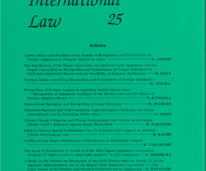Shell wins appeal in landmark Netherlands climate case
JURIST
NOVEMBER 12, 2024
A Netherlands appeals court overturned a landmark 2021 ruling requiring Shell to cut its carbon emissions by 45 percent by 2030 on Tuesday. The court found that the order to cut emissions by 45 percent by 2030 placed an undue burden on the company, potentially disrupting its business planning and investments in energy transition projects.














Let's personalize your content